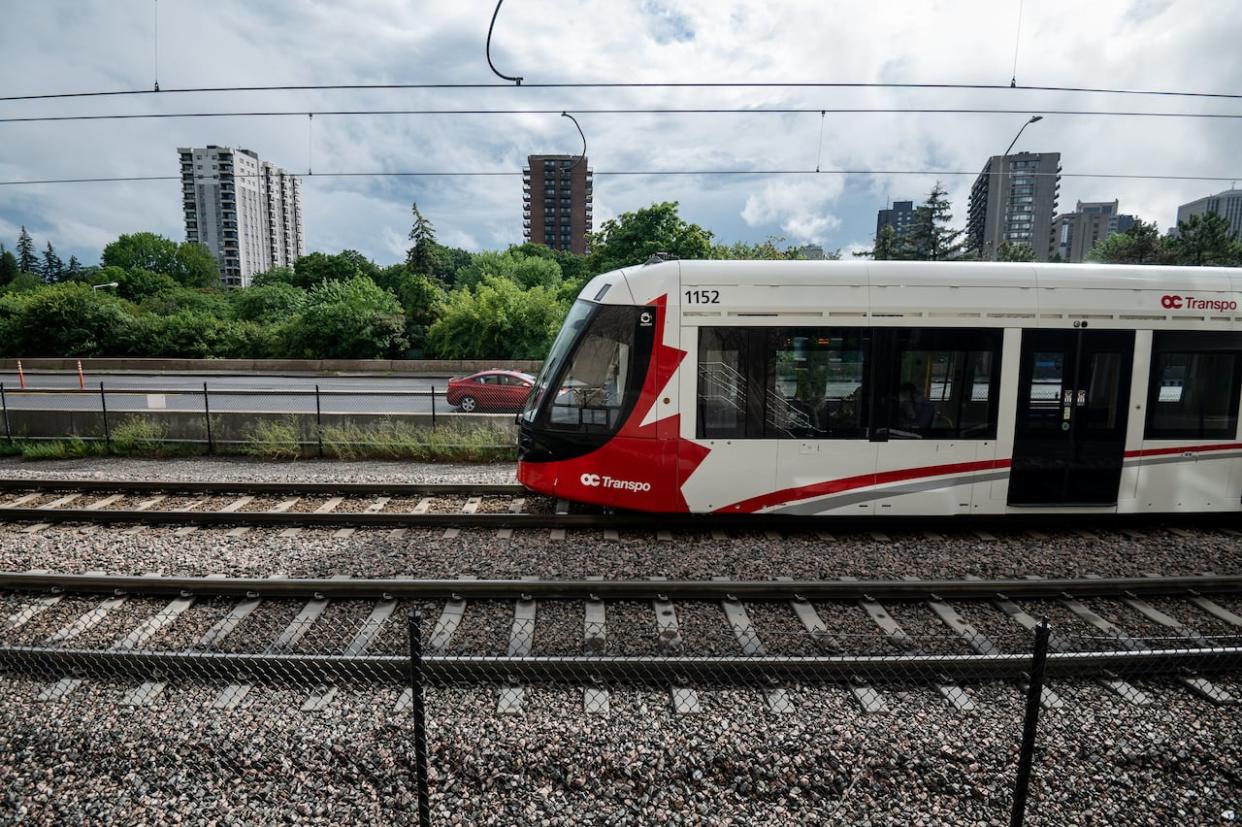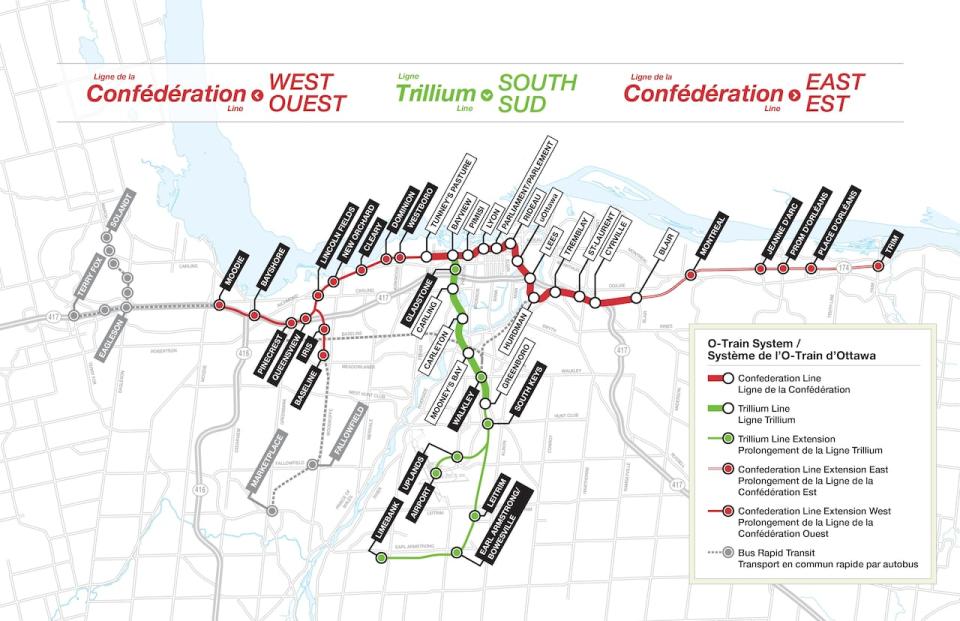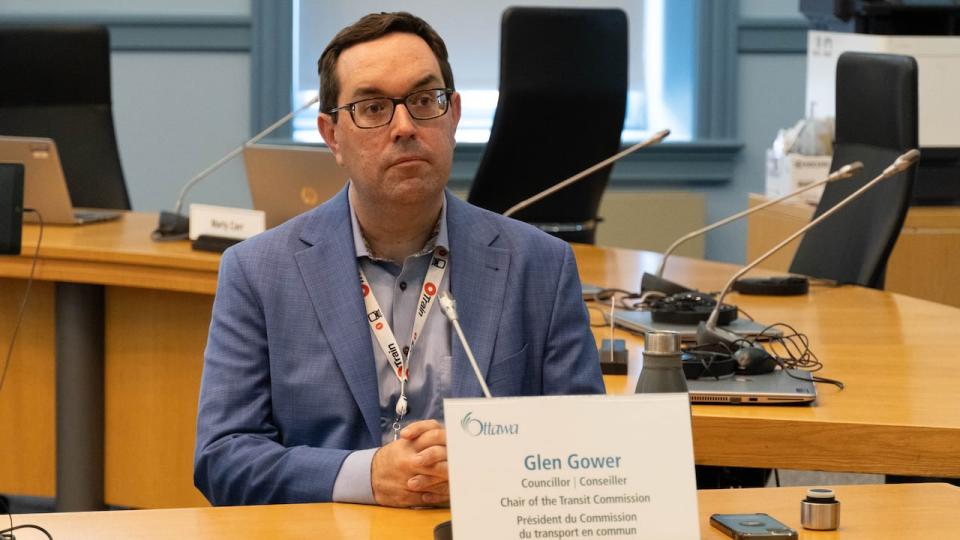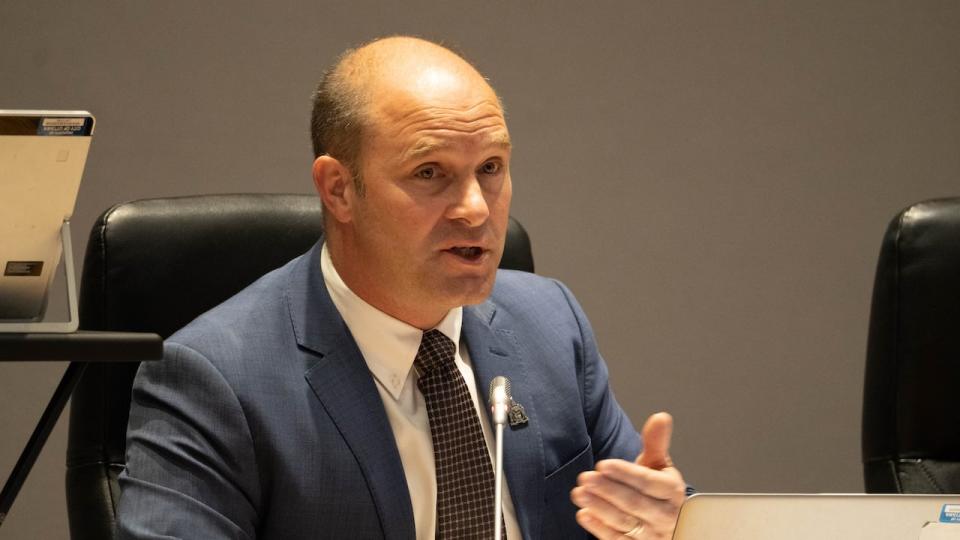LRT Stage 3 is at risk. How can Ottawa get it back on the rails?

Building the final planned extension to Ottawa's troubled light-rail transit system is no longer an affordable option, at least for the next 25 years. That statement — one of many dire pronouncements from the city's recent update to transit's long-term financial plan — was sobering.
But experts and local representatives say it should not come as a surprise.
The Stage 3 plan involves extending light-rail transit infrastructure into some of Ottawa's fastest growing communities: Kanata, Stittsville and Barrhaven.
The overall cost is now pegged at a staggering $6.5 billion, including $2.5 billion for the east-west portion and $4 billion for the connection to Barrhaven, according to data released to transit commission chair Glen Gower.
That's more than the last publicly available estimates of $1.8 billion and $3.5 billion, respectively.
None will come from city coffers. From the very beginning, staff have said it must be completely financed by 50-50 contributions from the provincial and federal governments.
"It's so that it can be affordable for the city," explained Gower, who represents Stittsville. "And that's different than Stage 1 and Stage 2, where the city contributed just over a third of the budget."

Stage 3 would see LRT extended into Kanata, Stittsville and Barrhaven. (City of Ottawa)
Now eight years from the city's original planned opening date, there have been no financial commitments, and a warning from Premier Doug Ford that Ottawa won't see any money until it solves its train problems — which have seen derailments, delays and an overall lack of transparency combine to erode public confidence.
Transit experts say the expansion may be politically necessary, but it doesn't make financial sense.
Long-promised service faces uncertain future
At this point, the environmental assessment for the infrastructure project is done, with the corridor and station plans completed. But Gower and other councillors emphasize there's still ample time to persuade governments to sign on.
"The discussion is probably not going to start for at least another year or two," said Barrhaven East Coun. Wilson Lo, at which point the city might be dealing with a different government at Parliament Hill.
That will provide time for the city — and municipalities across the country — to sharpen their arguments, said Gower.
"I think we have a really good justification," he said. "Transit is essential to the economy … Stage 2 and Stage 3 is about opening up new land for housing."
Barrhaven was initially expected to be among the first Ottawa communities to have access to light-rail transit, but in 2006, the council under then-mayor Larry O'Brien, opted to cancel a $778-million contract for a southern extension, forcing the city to pay out $37 million to contractors Siemens-PCL/Dufferin.

Barrhaven East Coun. Wilson Lo said people in his ward were once slated to be among the first communities connected to light-rail transit. (Jean Delisle/CBC)
"A lot of residents who bought in this community especially for the original O-Train, they still talk about it," said Lo. "They still talk about how this is the community that was supposed to get LRT first and now we're likely to never get it, or not get in their lifetime."
No 'evidence' of LRT business case, says rail expert
Asked if there might come a time when the city is forced to give up on Stage 3 completely, Gower said "I don't think so."
But some outside experts wonder if it's financially viable.
If Ottawa is completely reliant on other levels of government to pay for construction, then UK-based transit consultant Michael Schabas said "it sounds like it's probably not going to happen."
"Canadian cities have got the ability to raise taxes from property and from fares and they should produce a business case that shows that something's worth doing."
The recent financial update emphasized that operating Ottawa's light-rail service is much more costly than initially thought, with the annual cost for operating the Stage 3 expansion now pegged at $64.1 million.
Ridership will increase "only slightly," staff said, by 2.5 per cent or about $5 million a year.
Schabas, who under Canadian infrastructure consultancy CPCS has worked for Toronto's Metrolinx, said City of Ottawa staff must now grapple with their "multi-million dollar mistake" of buying "a fleet of Ferraris to take the kids to school" that they can never return to the dealer.
"Ottawa had a great bus system," he said. "They picked a system with drivers and infrequent trains, big, long, infrequent trains. And so they've actually probably made transit in Ottawa worse for all the money they spent."
It's "a bit late to do anything about that," he said, suggesting that he sees "no evidence" of a strong business case for expanding the LRT and urging OC Transpo to consider a properly researched and well-financed alternative.
Bus rapid transit an interim solution
Gower, Lo, and Barrhaven West Coun. David Hill all agree that bus rapid transit (BRT) service is enough "for now" —so long as it works.
"We don't want people who are out in the new developments like on The Ridge and in Quinn's Pointe who have to walk two kilometres to get to their first stop and then have a one-and-a-half hour commute to Carleton," said Hill.
"The short term for LRT Phase 3 is a couple of decades. Let's be clear. I think in the shorter term the need for reliable, safe transit is now. And I don't see why we can't have both."

Transit commission chair Glen Gower said he can't imagine a future where Stage 3 is cancelled. (Jean Delisle/CBC)
Jacob Wasserman, a research project manager at the UCLA Institute of Transportation Studies, said providing affordable rapid transit to the suburbs is a challenge that's common to many U.S. and Canadian cities.
Buses can work, but you have to make the system align with light-rail standards.
"So, you have stations instead of just stops. You can pay your fare at the station instead of lining up as you get on the bus. You get priority at traffic lights or even crossing gates," he said.
The problem, he said, is that political pressure often forces compromises like removing segregation and crossings that "eat away and eat away" until a BRT looks almost exactly like ordinary bus service.
He and Hill said the difference in service also creates challenging optics.
"We have been investing significant development charge monies and tax revenues from Barrhaven into transit and we need to see some return on investment," said Hill.

Coun. David Hill, who represents Barrhaven West, said his residents pay for transit and deserve a reliable service. (Jean Delisle/CBC)
Continuing growth weighs on decision
Hill and Lo also suggested that decisions on bus routes have failed to keep up with the pace of Barrhaven's growth.
The city is now beginning to consider a new phase of "route optimization" aimed at finding efficiencies in the face of this year's $40 million operating deficit.
Finding ways to bolster the existing rapid transit network would not only help residents, said Lo, it would strengthen a future business case for LRT expansion.
It would also save money.
While bus rapid transit can only handle 9,000 passengers an hour, or half the capacity of light rail, Gower said it can be built quicker at 20 to 30 per cent of the cost.
Eventually, the councillors believe population changes will make the multi-billion dollar expansion the more viable option.
"We need rapid transit in our communities in Kanata, in Stittsville, there's so much growth happening," said Gower. "There is not an option where we don't invest in higher order transit."


